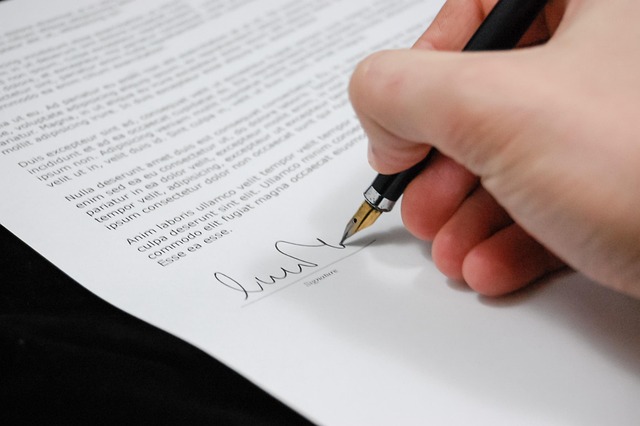In today's global business landscape, accurate Shareholder Agreements UK translation services are essential to prevent legal issues and maintain smooth company governance. These services ensure that shareholder agreements are not just linguistically correct but also legally compliant across different jurisdictions, as what works in one country might not apply elsewhere. Professional translators must be bilingual, legally savvy, and culturally sensitive to accurately convey complex legal terms related to ownership, rights, and responsibilities. Choosing a reputable service provider with extensive legal documentation experience and fluent translators is crucial for maintaining the precision, confidentiality, and integrity of agreements. Rigorous Quality Assurance checks ensure both textual accuracy and legal soundness, preserving the original intent and compliance with relevant frameworks.
In today’s globalized business landscape, ensuring clarity in translated shareholder agreements is paramount for companies expanding internationally. This article guides you through the intricacies of navigating these complex documents, focusing on the UK context. We explore key components of shareholder agreements and their global implications, emphasizing the critical role of accurate legal translation. Learn about cultural nuances, regulatory differences, and best practices for selecting reputable UK translation services to ensure fidelity to original meaning. Discover quality assurance checks and real-world case studies showcasing successful globalization through professional translation.
- Understanding Shareholder Agreements: Key Components and Their Global Implications
- The Importance of Accurate Translation for Legal Documents
- Challenges in Translating Shareholder Agreements: Cultural Nuances and Regulatory Differences
- Selecting the Right UK Translation Services for Complex Legal Texts
- Ensuring Fidelity to Original Meaning: Techniques for Consistent Translation
- Quality Assurance Checks: Validating the Translated Agreement's Legal Soundness
- Case Studies: Successful Globalization of Shareholder Agreements Through Professional Translation
Understanding Shareholder Agreements: Key Components and Their Global Implications

Shareholder agreements are a fundamental legal framework for businesses, outlining the rights and responsibilities of owners. These documents vary across jurisdictions but share core elements like ownership percentages, decision-making processes, profit distribution, and dispute resolution mechanisms. When it comes to global operations, ensuring these agreements are accurately translated is paramount. For instance, UK translation services specializing in shareholder agreements must grasp the nuances of different legal systems to convey precise meanings.
The implications of unclear translations can be far-reaching, leading to misinterpretations that may disrupt company governance and even invite legal complications. Therefore, professional translators should not only be proficient in both source and target languages but also familiar with the global business contexts in which these agreements will be used. This includes understanding local regulations, cultural differences, and the specific requirements of international stakeholders.
The Importance of Accurate Translation for Legal Documents

In today’s globalised business landscape, companies often operate across borders, which necessitates clear and precise legal documentation, particularly when it comes to shareholder agreements. Accurate translation services play a pivotal role in ensuring that these crucial documents maintain their integrity and meaning when moved from one language to another. A professional UK translation service is essential for several reasons; they not only translate words but also convey the nuances, intent, and legal implications inherent in such agreements.
When dealing with shareholder agreements, language is more than just words on a page. Legal terms often have specific connotations and requirements that vary from one jurisdiction to another. Skilled translators with expertise in both languages and legal fields are vital to ensure these agreements comply with local laws while preserving the original intent of the document. This meticulous process safeguards against potential disputes arising from misunderstandings or misinterpretations, providing clarity for all parties involved in global business ventures.
Challenges in Translating Shareholder Agreements: Cultural Nuances and Regulatory Differences

Translating shareholder agreements for global audiences presents a unique set of challenges, especially when navigating cultural nuances and regulatory variations across different jurisdictions. What works in one country might not be applicable or even effective in another, making accurate UK translation services essential for international businesses. Cultural differences can significantly impact how concepts like ownership, rights, and responsibilities are perceived and structured, often leading to literal translations that fall short of capturing the intended meaning.
Regulatory frameworks also vary widely, with different countries having distinct laws governing companies and shareholder rights. For instance, what is considered a standard clause in one country might be entirely absent or require a different wording in another. Therefore, professional translation services should not only focus on linguistic accuracy but also possess a deep understanding of these variations to ensure the translated agreement remains legally sound and compliant with local regulations, such as those in the UK.
Selecting the Right UK Translation Services for Complex Legal Texts

When it comes to translating complex legal texts like shareholder agreements, choosing the right UK translation service is paramount. Look for providers with extensive experience in legal documentation and a deep understanding of both UK and global business structures. This expertise ensures that technical terms are accurately conveyed and contextually appropriate, minimising potential misinterpretations.
Reputable translation services should employ professional translators who are not only fluent in English but also have a strong command of the target languages. They should also offer quality assurance processes, such as proofreading and editing, to catch any errors or inconsistencies. Reputational checks and references from previous clients can help verify the service’s reliability, ensuring your shareholder agreements are handled with precision and confidentiality.
Ensuring Fidelity to Original Meaning: Techniques for Consistent Translation

When translating shareholder agreements for a global audience, maintaining the original meaning and intent is paramount. The nuances of language can significantly impact legal documents, potentially leading to misinterpretations and disputes. Professional UK translation services employ several techniques to ensure fidelity to the source text.
These include employing native speakers with legal expertise, utilizing specialized glossaries and style guides tailored to shareholder agreements, and cross-referencing against equivalent terms in other jurisdictions. Advanced translation memory tools also help maintain consistency across lengthy documents, ensuring that key clauses and expressions remain faithful to the original agreement.
Quality Assurance Checks: Validating the Translated Agreement's Legal Soundness

When utilizing UK translation services for shareholder agreements intended for global use, it’s paramount to implement rigorous Quality Assurance (QA) checks. These checks serve as a critical step in validating not just the textual accuracy but also the legal soundness of the translated document. Skilled translators and legal experts should collaborate to ensure that the agreement’s original intent is preserved and that it complies with the regulatory frameworks of the jurisdictions where it will be executed.
QA processes should encompass a comprehensive review, focusing on terminological consistency, grammatical correctness, and the preservation of legal terminology and structures. This includes scrutinizing the translated agreement for any ambiguities, contradictions, or omissions that could impact its enforceability. By combining linguistic expertise with legal knowledge, these checks help maintain the integrity of the shareholder agreement, ensuring it remains a robust and reliable framework for global business operations.
Case Studies: Successful Globalization of Shareholder Agreements Through Professional Translation

The successful globalization of shareholder agreements requires meticulous attention to detail, especially when it comes to translation. Many companies have navigated this complex process with the help of professional UK translation services, achieving seamless communication across borders. These case studies demonstrate that a well-executed translation strategy is key to ensuring clarity and legal soundness in global documents.
One notable example involves a multinational tech startup that expanded from the UK to Europe and Asia. They partnered with experienced translators who specialized in financial and legal documentation. By adhering to local language norms and legal terminology, they created accurate and culturally sensitive translations, fostering smooth operations across all markets. This approach not only facilitated investor relations but also mitigated potential legal pitfalls associated with poor translation quality.
In navigating the complexities of global business, ensuring clarity in translated shareholder agreements is paramount. By understanding key components, leveraging professional UK translation services, and implementing rigorous quality assurance checks, businesses can effectively manage international partnerships. This article has highlighted the importance of accurate translation, cultural nuances, and regulatory differences, providing practical techniques for consistent interpretation. With these strategies in place, companies can streamline the globalization process, fostering robust and legally sound shareholder agreements worldwide.



